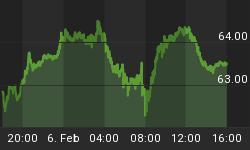With gasoline prices exceeding $4 a gallon in some states, politicians are responding as usual: Blame Big Oil First. Several prominent senators have once again summoned industry leaders to Capitol Hill, subjecting them to yet another barrage of rhetorical questions, interruptions, accusations, and sermons. The lawmakers' goal, claims Sen. Patrick Leahy, is to identify "causes of the rising price of oil on which Congress can act." But the foregone conclusion is that "price gouging," "collusion," and "market manipulation" by Big Oil, or speculation by financiers, is responsible.
The simple fact that such Congressional investigations are designed to obscure is that the prices of oil and gasoline are determined by supply and demand--which neither private oil companies nor speculators have any power to dictate in their favor. If they had such market mastery, then why didn't they use it in the 1990s, when gasoline was selling at a barely profitable $1 a gallon? To be sure, speculators can bid up prices--but they only do so when they believe that oil will become even more expensive in the future, and only make money when they are right.
The question Congress should really be asking, then, is: What nonmarket factors are distorting supply and demand? If they sought an honest answer, they would discover that much of the blame lies with Congress itself.
No one disputes that environmentalist laws passed by Congress have cut off some of our most promising and plentiful sources of oil. In the name of safeguarding a tiny portion of caribou habitat in the Alaskan wilderness, drilling is prohibited in the Alaska National Wildlife Refuge--a potential source of 1 million barrels a day, 5 percent of America's daily oil consumption. Also off-limits is 85 percent of America's coastline, which Shell estimates contains some 100 billion recoverable barrels--13 times America's annual oil consumption--and the vast majority of oil shale in Colorado, which Shell estimates at 1.5 trillion barrels.
Congress should publicize these facts, prepare an inventory of how many oil-rich areas they have blocked off, and bring in economists to estimate how much all of this raises gas prices.
And how about the effects of Congress's open hostility toward the future of oil? Our politicians damn oil as an "addiction" to be eliminated, and seek to cut--by up to 90 percent--the use of oil and other vital fossil fuels that make our standard of living possible. Congress should ask oil executives how this possible forced cut in demand affects their industry. It should ask whether they feel safe to make the billion dollar investments and decades-long plans that oil production requires when Barack Obama, a leading presidential candidate, can uncontroversially proclaim that "the country that faced down the tyranny of fascism and communism is now called to challenge the tyranny of oil." Is it a coincidence that the much-maligned speculators think oil will become even scarcer in the future, and are acting accordingly?
In addition to investigating its own impact on gasoline prices, Congress should investigate how its economic policy partner, the Federal Reserve, has raised our gas prices by lowering the value of the dollars we buy gasoline with. The Fed, along with the Treasury Department, has for years had an inflationary policy that has caused the value of the dollar to plummet relative to other currencies. Were it not for this devaluation of the dollar, oil prices would likely be 40 percent lower--as they are for those on the Euro. Why not call a free-market economist to the stand and ask how much more expensive Alan Greenspan, Ben Bernanke, and Henry Paulson have made our gasoline?
Americans deserve to know the story--in all its gory detail--of what their government has done and is doing to cause high prices at the pump, and to make gasoline -- indeed, all energy -- more scarce and more expensive in the future. A congressional investigation of Congress would be a great public service.















